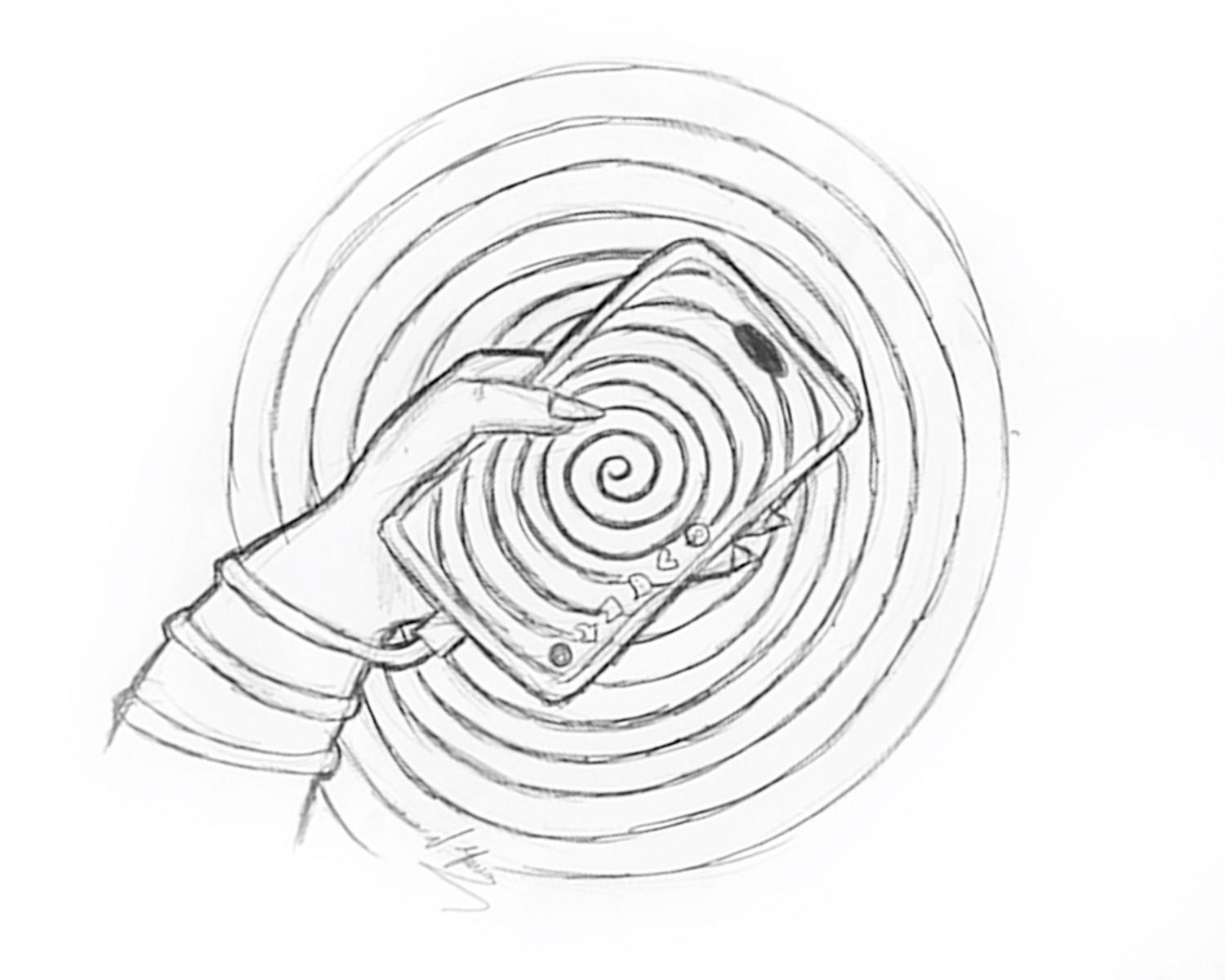
Many teenagers end their busy days mindlessly scrolling through their phone, drifting off to sleep with blue light glaring in their face. They wake up soon after, immediately turning on their phone again to check if there are any new updates. The extensive use of cell phones among teenagers is unhealthy in their development as it harms sleep, decreases personal interactions and increases anxiety.
Most people are guilty of being glued to various electronics throughout the day, even staying up late watching television or checking social media. According to Sleep Foundation, the blue light emitted by screens disrupts the circadian rhythm of the human sleep-wake cycle, hindering the production of melatonin and contributing to inconsistent sleeping patterns.
Many adolescents already struggle with suboptimal sleep every night due to school and other commitments. The addition of screen time to teenagers’ hectic schedules further harms their ability to get the sleep that is imperative for academic performance: students need rest to sustain their focus in school.
Likewise, teenagers are still in the process of developing into adults. Urging young adults to put their electronics away before bed would allow for better sleeping habits.
Teenagers may also overuse their electronic devices to avoid interacting with peers face-to-face. According to Pew Research Center, 43% of teenagers say they often use their device to avoid social interaction. As the prominence of social media continues to expand throughout the world, new forms of entertainment and communication garner the attention of adolescents.
Young adults may become reliant on online interactions, choosing to hide behind their screen. This can lead to a decrease in valuable in-person interactions, which are fundamental in creating meaningful connections.
According to Butler Hospital, those who spend more time than average on screen activities are more likely to be unhappy, lonely or suffer from anxiety or depression. One of the primary reasons teenagers are attached to their phones is because of social media, which fosters the spread of unhealthy values and practices.
Society’s standards are on full display on various social platforms that are easy for insecure adolescents to access. This prompts some individuals to compare themselves to others and generally lack confidence in themselves. Some may also grow increasingly dependent on social media, feeling the need to constantly refresh their pages and stay up to date with the latest events. This creates an obsessive relationship with one’s phone, essentially fostering the development of a serious addiction.
As the Internet continues to grow and expand its influence on the modern world, teenagers will continue to become more reliant on their phones. Whether they are used for entertainment or communication, the excessive use of electronic devices will hurt teenagers in this crucial time of their human development.














